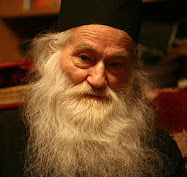 Becurile de 100 de wati au fost retrase marti, 1 septembrie, de pe toate rafturile din UE, inclusiv din Romania. Pana in 2011 (ce-o fi cu anul asta?) vor fi eliminate toate becurile normale. Becul lui Edison, cu lumina calda, a fost inlocuit cu un asa zis "bec ecologic", incarcat cu... mercur, care elimina unde cu efecte necunoscute asupra organismului si o lumina rece care-ti distruge ochii si, daca citesti mai mult, iti fug randurile de sub ochi si te trezesti cu ameteli. Evident, ce rost are sa mai si citim?! Ne uitam la televizor si apoi mergem ca vitele la munca si, neaparat, la... vot. Pentru cine? Pentru astia care ne distrug pana si sanatate fara nici un drept de apel?!
Becurile de 100 de wati au fost retrase marti, 1 septembrie, de pe toate rafturile din UE, inclusiv din Romania. Pana in 2011 (ce-o fi cu anul asta?) vor fi eliminate toate becurile normale. Becul lui Edison, cu lumina calda, a fost inlocuit cu un asa zis "bec ecologic", incarcat cu... mercur, care elimina unde cu efecte necunoscute asupra organismului si o lumina rece care-ti distruge ochii si, daca citesti mai mult, iti fug randurile de sub ochi si te trezesti cu ameteli. Evident, ce rost are sa mai si citim?! Ne uitam la televizor si apoi mergem ca vitele la munca si, neaparat, la... vot. Pentru cine? Pentru astia care ne distrug pana si sanatate fara nici un drept de apel?!Decizia a venit oarecum pe neasteptate, fara nici o pregatire corespunzatoare a populatiei. Azi s-a dat stirea, maine s-a executat. Guvernul nu a binevoit nici o clipa sa ne explice DE CE aceasta decizie obligatorie.
Dupa introducerea obligatorie si fara alternativa a sarii iodate, apoi proiectul plumbului din paine si Codex alimentarius, acum ne-am trezit si victime ale unei decizii UE cat se poate de controversate, impusa peste noapte, tot fara dreptul de a alege, totalmente dictatorial. Din pacate, in Romania, ca vite ce am ajuns sa fim, nu s-a sesizat nimeni public. Sa zica: ba, da' de ce? Iar ziaristii (specie pe cale de disparitie) transformati in I-Pod-uri ale puterii au reprodus ca prostii ce primisera de la CC al UE, respectiv ca: "Interdicţia de comercializare a becurilor incandescente ar putea duce la economii de 40 TWh/an în cadrul comunităţii europene, echivalent cu aproape consumul anual de electricitate al României." Va dati seama? Si daca eu nu vreau sa economisesc si apoi sa orbesc? Ce fac? Putini au mai spus si ca un bec "ecologic" costa cat o lada de becuri normale. Deci, e si o afacere. Pentru unii. Va dati seama, daca maine ne zice UE ca trebuie sa schimbam tot asfaltul din Romania, cu unul" ecologic", verde?!
Si cat de "ecologice" sunt becurile noii afaceri di granda a UE cand functioneaza cu... mercur?! Iar, dupa cum bine observa Radu Portocala, in acelasi timp, tot UE interzice termometrele cu mercur, pentru ca... ati ghicit, "nu sunt ecologice" iar mercurul este toxic si nu poate fi aruncat la gunoi. Dar becurile?
"Becurile ecologice sunt foarte eficiente, dar o dată ce au fost utilizate, devin o bombă biologică cu ceas" a declarat Leonard Robinson, directorul adjunct al Departamentului pentru Controlul Substanţelor Toxice din California, pentru foxnews.com.
Becurile "ecologice" conţin mercur şi nu ar trebui aruncate la coşurile de gunoi obişnuite, la fel ca celelalte becuri, avertizează specialiştii.
Depozitarea mercurului se face prin obţinerea unor forme insolubile, cum ar fi sulfura de mercur (compus inofensiv), însă e otrăvitor în forme solubile, cum ar fi clorura de metil, suntem informati, totusi, de un ziarist care si-a pus intrebari.
Becurile "ecologice" conţin mercur şi nu ar trebui aruncate la coşurile de gunoi obişnuite, la fel ca celelalte becuri, avertizează specialiştii.
Depozitarea mercurului se face prin obţinerea unor forme insolubile, cum ar fi sulfura de mercur (compus inofensiv), însă e otrăvitor în forme solubile, cum ar fi clorura de metil, suntem informati, totusi, de un ziarist care si-a pus intrebari.
Buun, deci nu-l putem arunca la cos. Si? Ne-a spus cineva asta, altcineva decat singurul ziarist care a observat acest lucru? Si ce facem cu el, dupa ce se arde "economicos". Il inghitim?
Avem un Guvern dement? Da! Si mai mult decat atat: nesimtit! De ce? Pentru ca, iata, alt ziarist care pune intrebari (mai exista dintr-astia?!) a reusit sa descopere ca interzicerea becurilor normale NU ESTE LEGALA! Cel putin in Marea Britanie, unde The Telegraph a lansat o mini-campanie in urma careia s-a relevat ca nu exista o baza legala pentru a impune aceasta decizie aberanta a UE.
O sa ziceti, poate, ca-i "mult zgomot pentru nimic". Dar asa incep toate dictaturile, cu un mic "nimic" luat. Un drept, acolo: dreptul de a alege.Ce mai urmeaza? Pai, vaccinul "anti-gripa"...
Si noi ce facem?
Haideti, fratilor, sa actionam!
Cititi mini-ancheta The Telegraph care expune si cenzura BBC - post de stat - la reactia negativa a populatiei
Defra confirms its bulb 'ban' is not legal
Low-energy light bulbs are widely detested and their energy savings and benefits vastly overstated, says Christopher Booker.
On Wednesday, in a bid to support the EU's attempt to ban incandescent light bulbs, the BBC News website invited its readers to "Have your say".
After a few hours of being deluged with more than 2,000 comments castigating the EU and so-called "low energy" bulbs in equal measure, the BBC hastily shut down the debate.
From the public response, it is clear that this has been one of the most provocatively unpopular actions taken by government for a long time. People deeply resent being forced to use bulbs which are not only widely detested but whose energy-savings and benefits have been vastly overstated. As the tests carried out by The Sunday Telegraph last week showed, "compact fluorescent lamps" give out barely half the amount of light claimed for them.
Another hugely important point, however, as I revealed last Sunday and which I have now confirmed in exchanges with the Department for Environment, Food and Rural Affairs, is that the Government has no legal powers to ban selling incandescent bulbs. EU Regulation 244/2009 may ban the import or sale of incandescent "non-directional household lamps" (the bureaucrats' term for ordinary light bulbs); but it specifically excludes from the ban the virtually indistinguishable "rough-service" bulbs, so long as these are marked "not suitable for household use".
When asked what UK law establishes it as an offence to sell or import normal incandescent bulbs in Britain, all Defra can come up with is a 2007 regulation, SI 2037, which relates to fridges and boilers but makes no mention of incandescent bulbs. In other words, they have been in such a desperate rush to implement this bizarre example of gesture politics that they don't actually have a legal leg to stand on.
I repeat: there is nothing in British law which makes it an offence to import or sell the incandescent bulbs that most people prefer – and Defra can find nothing to contradict this statement. What a sad farce.
Low-energy light bulbs are widely detested and their energy savings and benefits vastly overstated, says Christopher Booker.
On Wednesday, in a bid to support the EU's attempt to ban incandescent light bulbs, the BBC News website invited its readers to "Have your say".
After a few hours of being deluged with more than 2,000 comments castigating the EU and so-called "low energy" bulbs in equal measure, the BBC hastily shut down the debate.
From the public response, it is clear that this has been one of the most provocatively unpopular actions taken by government for a long time. People deeply resent being forced to use bulbs which are not only widely detested but whose energy-savings and benefits have been vastly overstated. As the tests carried out by The Sunday Telegraph last week showed, "compact fluorescent lamps" give out barely half the amount of light claimed for them.
Another hugely important point, however, as I revealed last Sunday and which I have now confirmed in exchanges with the Department for Environment, Food and Rural Affairs, is that the Government has no legal powers to ban selling incandescent bulbs. EU Regulation 244/2009 may ban the import or sale of incandescent "non-directional household lamps" (the bureaucrats' term for ordinary light bulbs); but it specifically excludes from the ban the virtually indistinguishable "rough-service" bulbs, so long as these are marked "not suitable for household use".
When asked what UK law establishes it as an offence to sell or import normal incandescent bulbs in Britain, all Defra can come up with is a 2007 regulation, SI 2037, which relates to fridges and boilers but makes no mention of incandescent bulbs. In other words, they have been in such a desperate rush to implement this bizarre example of gesture politics that they don't actually have a legal leg to stand on.
I repeat: there is nothing in British law which makes it an offence to import or sell the incandescent bulbs that most people prefer – and Defra can find nothing to contradict this statement. What a sad farce.
Related Articles


































































No comments:
Post a Comment